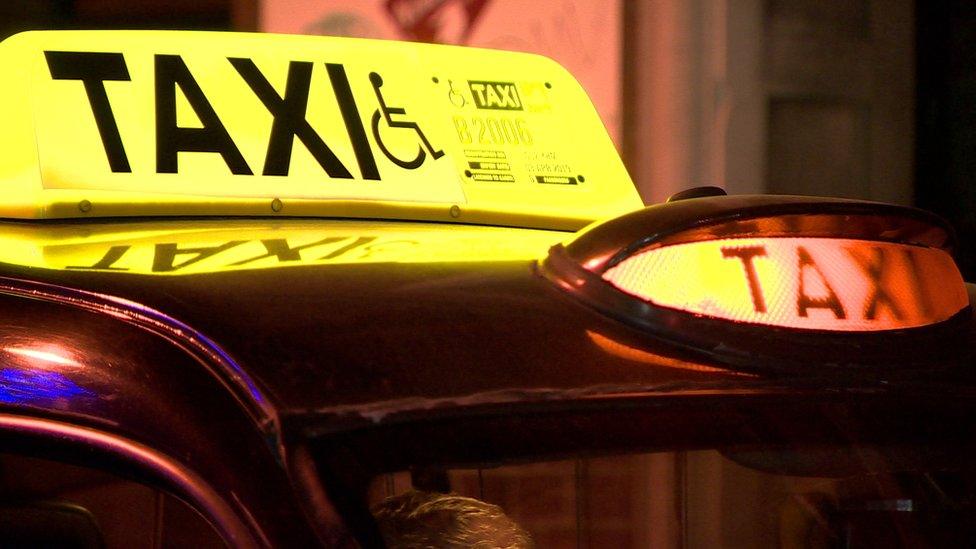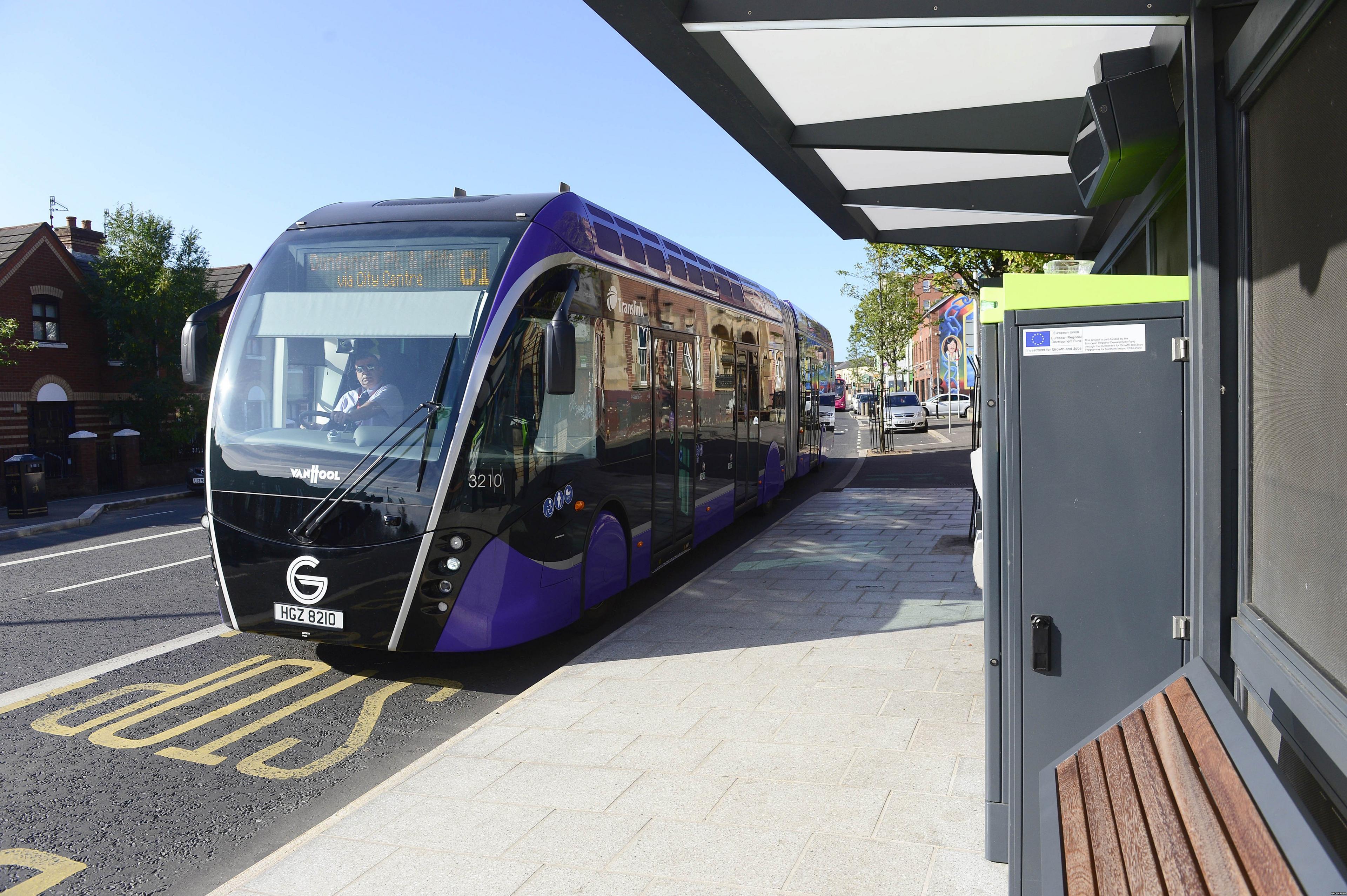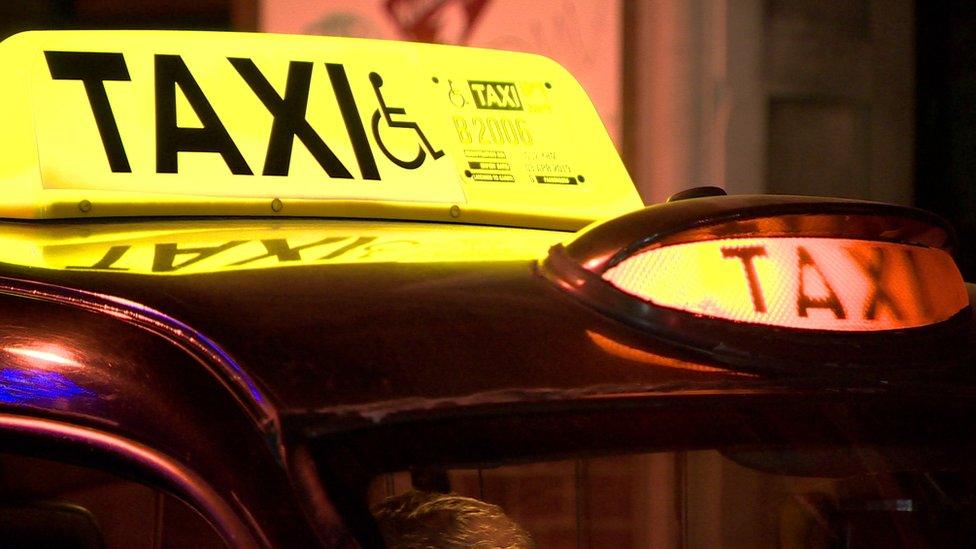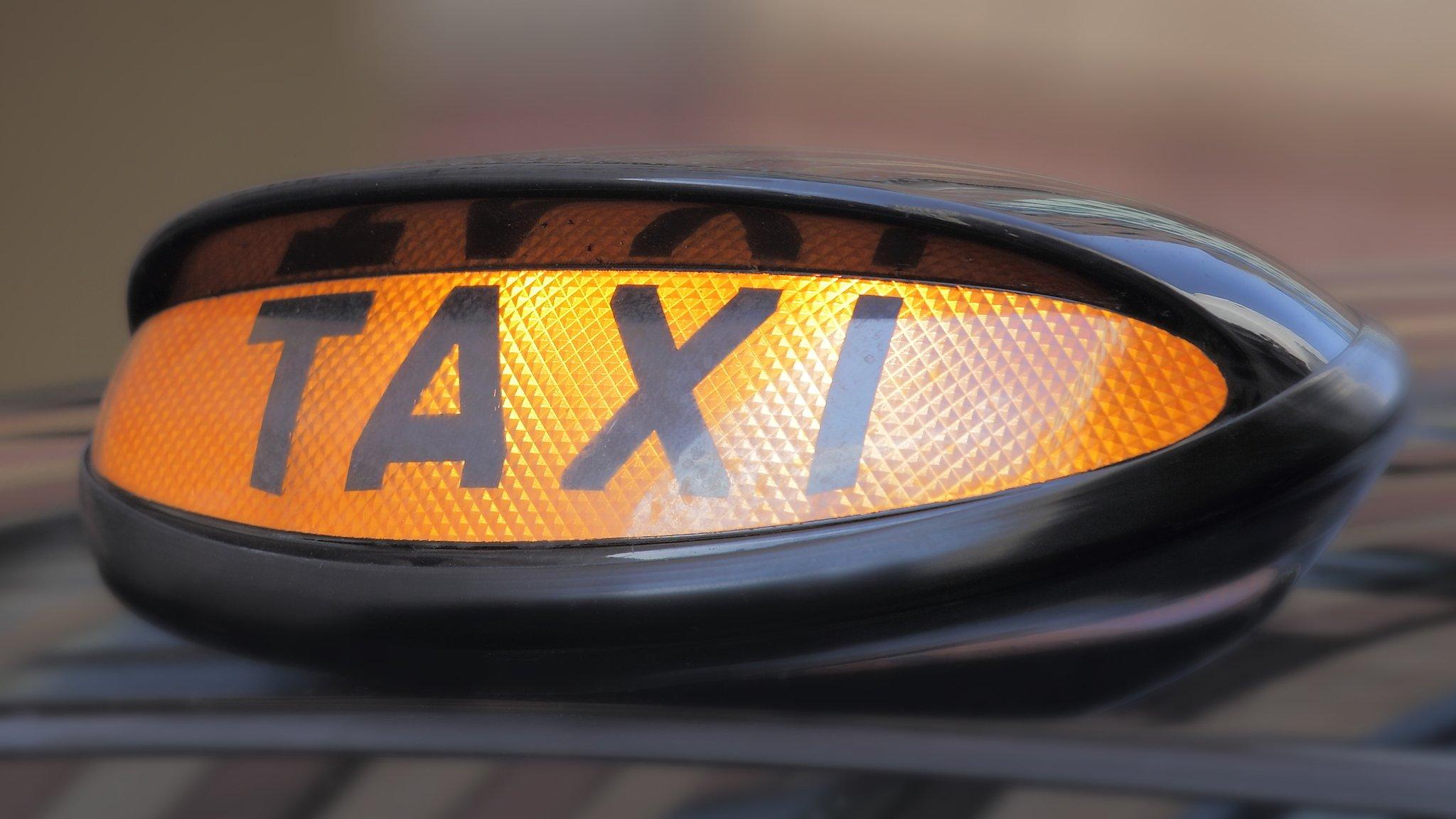Taxi driver numbers: Theory test 'leading to decrease'
- Published

Some drivers believe the downward trend may be due to changes to the taxi driver test introduced in 2014
The number of licensed taxi drivers in Northern Ireland has fallen further, with 6,000 fewer on the road than five years ago.
New figures from the Driver and Vehicle Agency (DVA) showed there were 9,738 taxi drivers as of 31 December, down from 10,480 a year earlier.
The final three months of 2019 represented the seventh quarter in a row in which the number has decreased.
At the end of 2013, there were 15,802 taxi drivers.
The director of Belfast taxi firm Fonacab said he believed some potential drivers who could do the job were daunted by the taxi theory test, external, which replaced the former PSV test in 2014.
The two-part examination, which includes multiple choice questions and hazard perception video clips, is designed to test a driver's knowledge of everything from road signs to eco-safe driving, vulnerable road users, mechanics and the safe loading of a vehicle.
William McCausland said the relatively low pass rate - 31.3% in the last quarter of 2019 - was a deterrent for some.
"I know quite a few drivers who've applied and failed and they don't want to deal with the hassle and cost of applying again, knowing it's so hard to pass.
"The cost is off-putting too - I have a driver here who recently did the test and all told, from the practical test, to the medical, to the refresher lessons and the cost of the licence itself, it was in and around £400. That's not cheap."
Multiple choice questions
However, the Department for Infrastructure (DfI) pointed out that the latest pass rate saw an increase of 1.2% over the preceding quarter, and was substantially higher than the 18.1% recorded in 2016-17.
A spokesperson said: "DVA remains committed to helping candidates pass the test and indeed helping operators support candidates pass the test whilst not unduly compromising on the safety and service improvement benefits."
Black taxi driver Robert McAllister, who has been working in the industry for more than 40 years, said many drivers believed the introduction of the Glider bus, linking east Belfast, west Belfast and the Titanic Quarter with the city centre, has reduced demand for inner city taxis.

The Glider started operating in 2018
The service, which runs about every seven to eight minutes at peak times, was introduced in September 2018.
"The Glider has really hurt business," he said. "We're dreading when phase two comes in for north Belfast to south Belfast as it'll be even worse.
"People complain about a shortage of taxis at closing time at the weekend, but Saturday nights are really the only time drivers can make their money these days.
"You look at most taxi ranks on any given weekday and you'll see black cabs and private hire taxis lined up, looking for work.
"The average driver now has to work between 70 and 90 hours a week to make it worthwhile and many of them have bad health because of the pressure they're under to earn a living in this business."
Speaking on the first anniversary of the Glider's introduction, Translink chief executive Chris Conway said there had been a "fantastic public response to the service".
He said: "Passengers enjoy the convenience, frequency and ease of use Glider offers for commuting to work, socialising, shopping, studying, appointments or simply exploring Belfast while also supporting cleaner air and a less-congested city."
- Published29 May 2019

- Published26 September 2016
